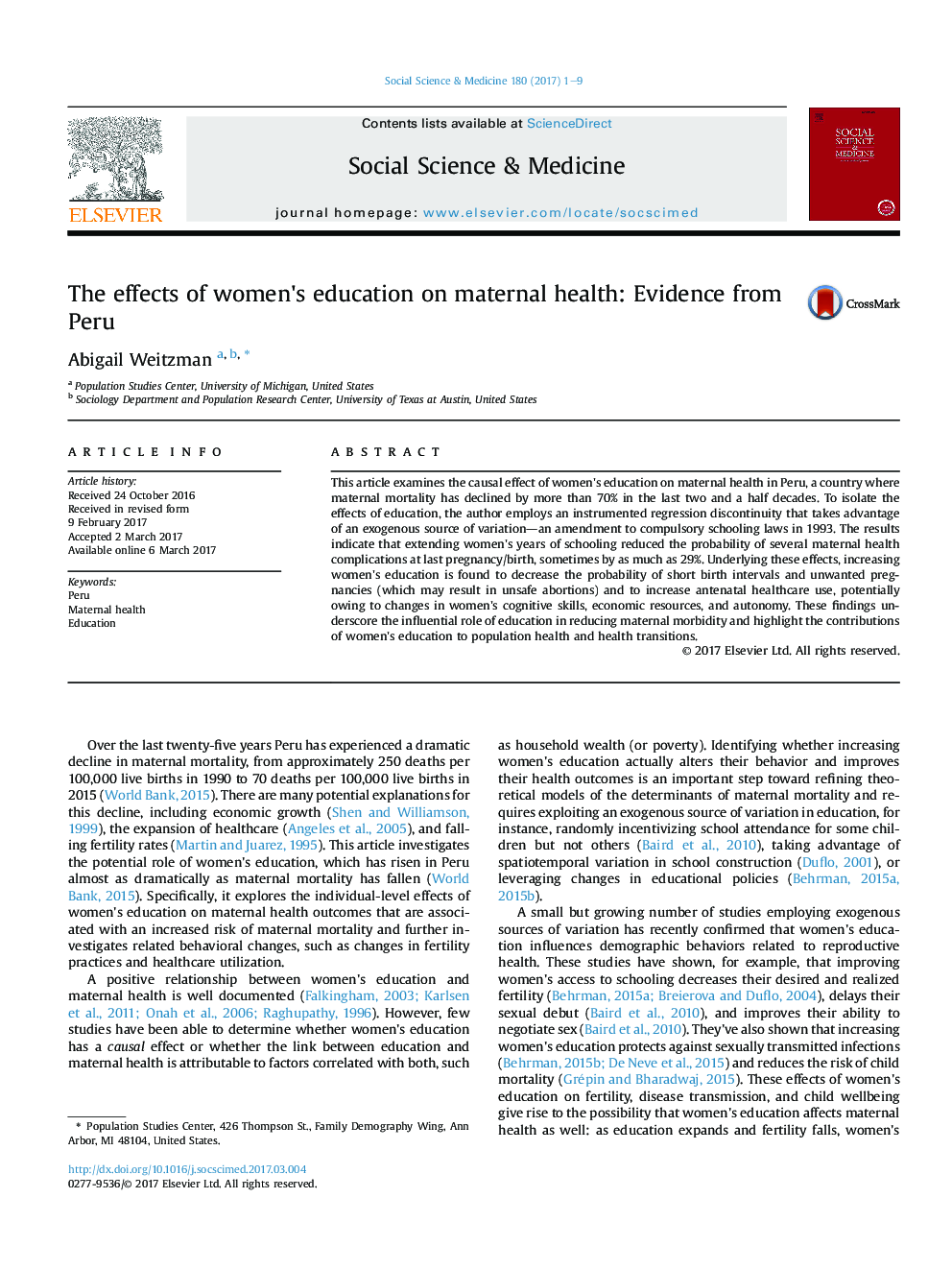| Article ID | Journal | Published Year | Pages | File Type |
|---|---|---|---|---|
| 5046568 | Social Science & Medicine | 2017 | 9 Pages |
â¢This study investigates the causal effect of education on maternal health.â¢The study employs increased compulsory schooling in Peru as a natural experiment.â¢Improving women's education reduces the risk of select maternal complications.â¢Education has the strongest protective effect on preventable conditions like fever.â¢Women's education has corresponding effects on their fertility and healthcare use.
This article examines the causal effect of women's education on maternal health in Peru, a country where maternal mortality has declined by more than 70% in the last two and a half decades. To isolate the effects of education, the author employs an instrumented regression discontinuity that takes advantage of an exogenous source of variation-an amendment to compulsory schooling laws in 1993. The results indicate that extending women's years of schooling reduced the probability of several maternal health complications at last pregnancy/birth, sometimes by as much as 29%. Underlying these effects, increasing women's education is found to decrease the probability of short birth intervals and unwanted pregnancies (which may result in unsafe abortions) and to increase antenatal healthcare use, potentially owing to changes in women's cognitive skills, economic resources, and autonomy. These findings underscore the influential role of education in reducing maternal morbidity and highlight the contributions of women's education to population health and health transitions.
